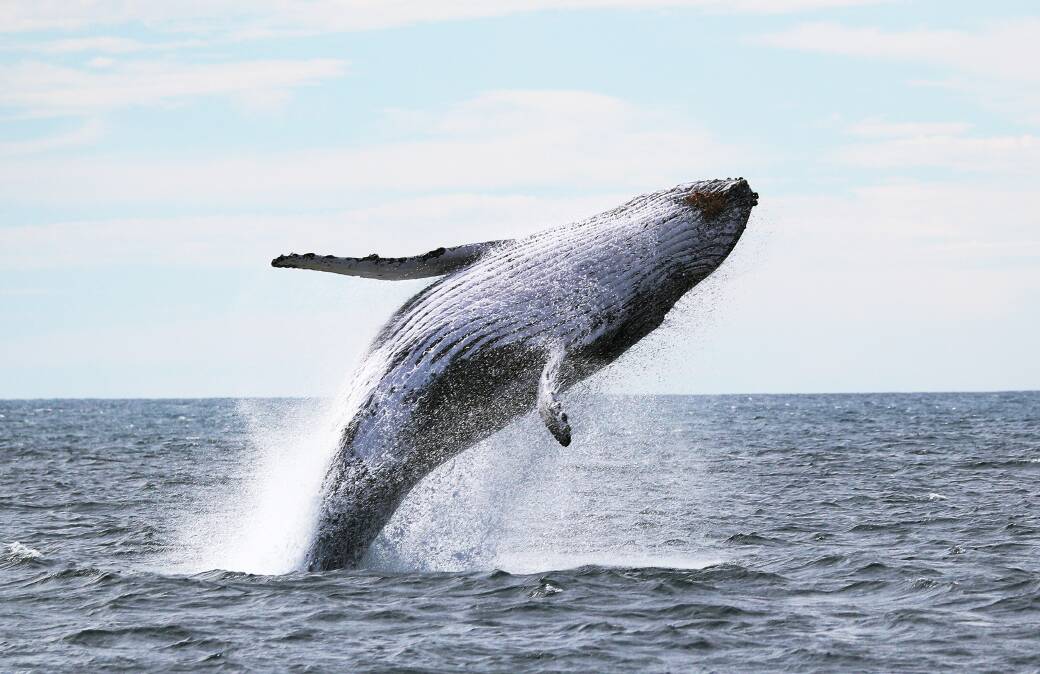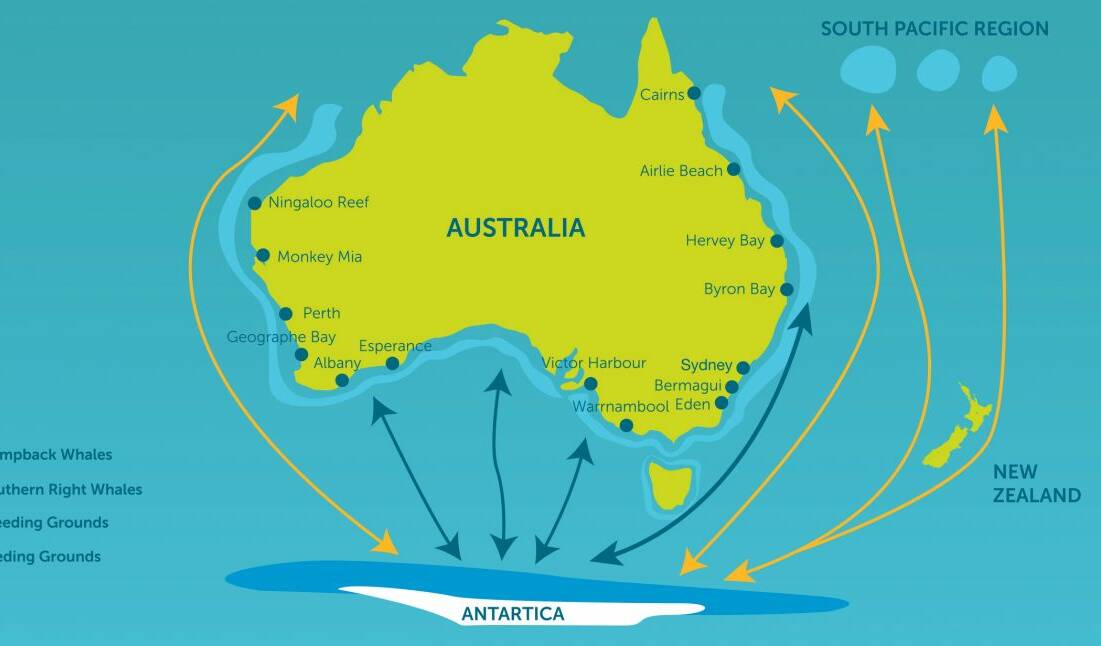Calm weather has caused hundreds of humpback whales to migrate close to Hunter shorelines this year, putting them at increased risk of injury from drumlines and debris, experts say.
Two whales have been entangled off Newcastle beaches already this week, and another humpback was rescued on Saturday after being caught in lines and floats off Five Islands near Port Kembla.
Volunteer for research and rescue group ORRCA, Daryn McKenny, said humpback whales were coming as close as 20 metres to the shore during calm days.
Last year's "crazy weather" meant most whales travelled around 20 kilometres from land when migrating north of Antarctica.

"All of the whales we are seeing this year are under four kilometres away," Mr McKenny said.
He said the whales were more "relaxed" this year and more likely to interact with humans or equipment.
Newcastle and the lower east coast sees southern right whales swim much closer to shore before stopping just south of Byron Bay, from where humpbacks continue into the South Pacific.
Whale population rates are also on the rise. The last official east coast whale count in 2015 found a population of 24,000. Now, NSW National Parks and Wildlife Service (NPWS) estimates a conservative population of 35,000.
A spokesperson from NPWS said migrating patterns vary each year depending on weather conditions, ocean temperatures and currents.

The spokesperson said despite three entanglements in SMART drumlines or ocean debris so far this year, entanglement numbers are generally low.
There have been just over six whales caught in SMART drumlines over the last six years but most free themselves quickly. The drumline have technology to help whales break out.
Instead, the majority of entanglements happen in fishing gear.
"Any whales moving closer to the shore increases the chance of interaction with human equipment," Mr McKenny said.
Marine Estate Management Strategy are working with state government and local industry to modify fishing gear.
WHAT DO YOU THINK? Join the discussion in the comment section below.







